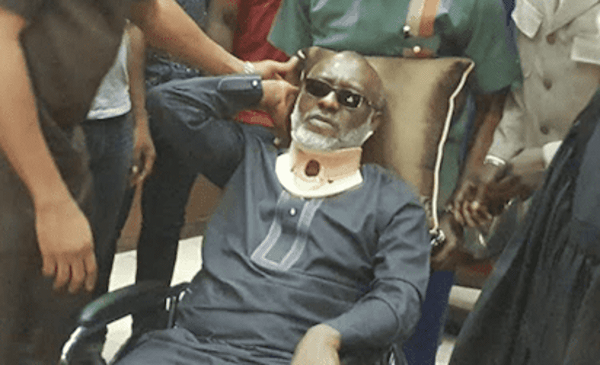Elites and fainting syndrome
SIR: The infamous “health issues” and the fainting-syndrome in courtrooms by Nigerian politicians that have been indicted for corruption is not only theatrical, poorly scripted but humorous.
Overtime, probing Nigerian politicians have appeared dramatic, and even frustrating when they began to devise different tactics to truncate their court trials. This is mostly done by scavenging for dubious court injunctions to either elongate their trials or to even quash their cases.
Most common among these tactics is suddenly developing “health issues” after which they usually ask for permission to travel abroad for treatment.
Politicians such as Bello Haliru Mohammed (former PDP chairman), Olisa Metuh (former PDP spokesperson), used this method so well that they suddenly appeared on wheelchair at their trial so as to illustrate the level of their “deteriorating” ill-health. One will wonder if they are terminal cerebral palsy patients or the weight of their sins had suddenly knocked them so hard such that it affected their spinal cord.
While Kemebradikumo Pondei, the interim managing director of the Niger Delta Development Commission (NDDC) on June 20, ‘fainted’ during his probe at the National Assembly, his action was not different from others, it only took another dimension with the usual intent to evade justice.
Among these players, I find the case of Abdulrasheed Maina; former chairman of the defunct Pension Reform Task Team most dramatic, hilarious, yet very embarrassing.
This man added a bit of twist to his acting. First, he appeared on a wheelchair to have the judge melt sympathy on him by granting him bail on health grounds. Jumped bail to Niger Republic, and when he was extradited to Nigeria to continue his trials, only to choose to faint during court proceedings. Isn’t this an interesting plot one should consider making a movie from?
As symbolically shameful these questionable acts may seem, it’s also an indication they’re most likely guilty of the alleged crime and the Nigeria judicial system should consider putting a mechanism in place to deal with people of this kind that are hellbent on frustrating the course of justice.
While Nigerians watch with keen interest on the eventual court judgement, what could be more worrisome than seeing these people later walk away, acquitted of all charges for lacking “substantial evidence” ?
*Written By Tijani Sanni


